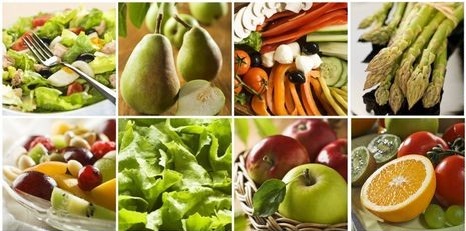Most of us understand intuitively that eating too much fat will make us fat without really understanding the science behind this or the advantages of a low-calorie diet.
To be successful in a weight loss program it’s necessary to understand the role fat plays in the diet and why it does indeed make us fat.
The energy obtainable from a particular food is dependent on the percentages of fats, carbohydrates, and proteins that make up that food.
This energy is measured by a unit called a calorie which has its origins and definitions in the amount of energy required to heat one liter of water one degree centigrade at sea level.
This doesn’t help much when weight loss is the goal. In weight loss or exercise a calorie is a measure of energy expenditure and is more correctly a kilo-calorie (one thousand calories) and is calculated initially in a laboratory setting.
A guideline would be that a pound of fat (0.454 kg) stores 3500 calories of energy.
To lose a pound a week on a low-calorie diet someone would have to reduce calorie consumption by approx. 500 calories per day (The maths behind this is the 500 calorie reduction is 3500 per week and that is equivalent to 1 lb of ugly fat).
The good news is that many foods purchased in the supermarket are well marked with the number of calories which can be used to make some estimates.
There is a wide range of calorie use by our body depending on many factors, not the least of these being the activity level and muscle composition.
Women require a lower calorie intake than do men, mainly because of their lower muscle proportion.
A sedentary lifestyle may only use around 1700 calories/day whereas with higher activity this may increase to 2900/day or even higher in a manual job.
Just strolling around will burn about 100 cal/mile for someone weighing 150lb (70kg). In order to get a 500 calorie deficit per day from a low-calorie diet someone would have to walk 5 miles per day if no changes were made to diet.
The calorific content of a food item will depend on the proportions of fat, carbohydrates, and protein it contains. If a food item contains a lot of fat it may have twice the calories as a food item that is mainly carbohydrates and/or protein.
This is because fat has 9 calories per gram whereas protein and carbohydrate only have 4 calories per gram.
The dairy food groups such as milk, cheese, and butter typically have a higher fat content and it is best to shop for a low fat alternative if you are looking for a low-calorie diet.
Studies have shown that lean men and fat men often consume a similar number of calories. However the obese men ate a higher proportion of fatty food which is more easily stored as fat than other food groups.
In addition the other food groups cause the body to use more energy (calories) just converting those food groups to fat and may consume up to 25 percent of the calories in the process.
If the proportion of fat in a diet is lowered, even with no reduction in total in the actual calories eaten, this can result in some weight loss. In spite of all the reduced fat choices that we have to eat, we still eat more fat than we need.
Unfortunately this is often a large component of the tasty little dressings and sauces that we pile on our meals to give some taste. Not to mention all of those deserts, and baking we like to finish off a meal with.
Trimming back on these or eliminating entirely will have a very big impact on calorific intake and move us to a low-calorie diet.
Reducing fat will give a good result even with a similar calorific intake.
IMPORTANT: Remember that fat has just over twice the number of calories as the other food groups and is a very good area to target in a weight loss program.
In any weight loss program it is best to not be in a rush so that the body can adapt to the changes and a boom and bust cycle of dieting and weight gain is avoided. Find some new low calorie foods to use on a low-calorie diet that you can really enjoy and which can be used to replace the high fat snacks.
We all find it can be a little tricky to drop that treat we save up for ourselves, but we need to if we are to have a long and healthy life.







